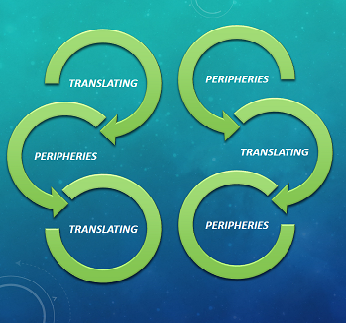Just How Marginal Was Machado de Assis? The Early Translations and the Borges Connection
DOI:
https://doi.org/10.21992/T9KK8FKeywords:
Translation, PeripheriesAbstract
Brazilian literature is traditionally understood to have developed in relative isolation from the literatures of Hispanophone Latin America, inhabiting a peripheral cultural space within the already peripheral sphere of Latin American literature. Perhaps the most striking example of this traditional conception is the commonly held assumption of the complete literary-historical separation of two of Latin America’s most renowned fiction writers: the Brazilian Joaquim Maria Machado de Assis and the Argentine Jorge Luis Borges. Machado de Assis, in particular, is often regarded as inhabiting a double cultural periphery, as both a Latin American and a Brazilian, who, furthermore, wrote in a “minor” language, never traveled outside of his own country, and rarely ever left his native Rio de Janeiro. Another enduring belief, tangential to the tale of Brazil’s cultural isolation, is that Machado de Assis’s work went untranslated, by and large, until about half a century after his death. Yet the early translation history of Machado’s work offers a fascinating insight into the literary ties that connect his work to the dominant literary cultures of the Americas and Europe and provides an intriguing literary-historical link between Machado de Assis and Jorge Luis Borges. Curiously, the connection between Machado and Borges, whose countries share a border, follows a route of translational cultural exchange through France and Spain, and involves a prolific translator who was both the first Spanish translator of Machado’s short fiction and the mentor of a young Borges: Rafael Cansinos Assens. Thus, the early history of Machado’s fiction in translation demonstrates that Machado is a much less peripheral figure than previously imagined, and that, through Machado, Brazilian literature is more intimately intertwined with the literatures of Hispanophone Latin America and the cultural capitals of Europe than critics and scholars have recognized.Downloads
Downloads
Published
Issue
Section
License
Authors who publish with this journal agree to the following terms: a.Authors retain copyright and grant the journal right of first publication with the work simultaneously licensed under a Creative Commons Attribution License that allows others to share the work with an acknowledgement of the work's authorship and initial publication in this journal. b.Authors are able to enter into separate, additional contractual arrangements for the non-exclusive distribution of the journal's published version of the work (e.g., post it to an institutional repository or publish it in a book), with an acknowledgement of its initial publication in this journal. c.Authors are permitted and encouraged to post their work online (e.g., in institutional repositories or on their website) prior to and during the submission process, as it can lead to productive exchanges, as well as earlier and greater citation of published work (See The Effect of Open Access).



